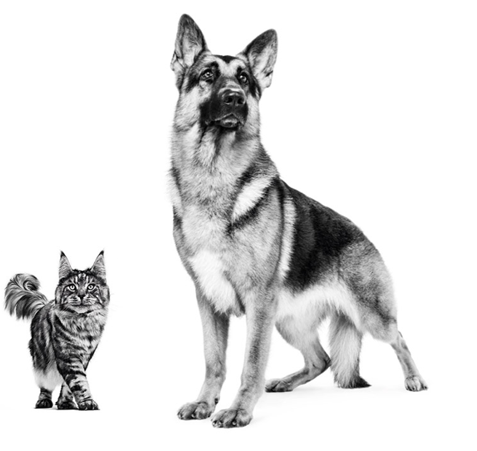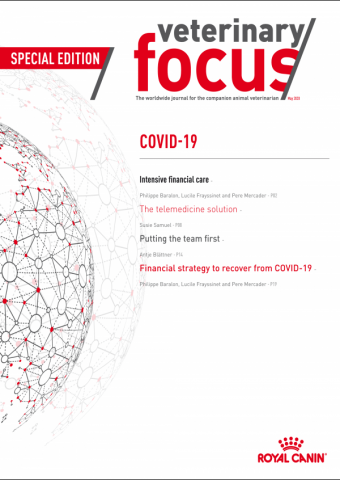
Get access to all handy features included in the IVIS website
- Get unlimited access to books, proceedings and journals.
- Get access to a global catalogue of meetings, on-site and online courses, webinars and educational videos.
- Bookmark your favorite articles in My Library for future reading.
- Save future meetings and courses in My Calendar and My e-Learning.
- Ask authors questions and read what others have to say.
COVID-19: Intensive financial care
Get access to all handy features included in the IVIS website
- Get unlimited access to books, proceedings and journals.
- Get access to a global catalogue of meetings, on-site and online courses, webinars and educational videos.
- Bookmark your favorite articles in My Library for future reading.
- Save future meetings and courses in My Calendar and My e-Learning.
- Ask authors questions and read what others have to say.
Read
Key to financial survival during the virus pandemic is having a basic understanding of the economics of veterinary practice, and how income, expenditure and profit are linked to each other.
Meet the authors
Philippe Baralon
Dr. Baralon graduated from the École Nationale Vétérinaire of Toulouse, France in 1984 and went on to study Economics (Master of Economics, Toulouse, 1985) and Business Administration (MBA, HEC-Paris 1990). He founded his own consulting group, Phylum, in 1990 and remains one of its partners to this day, acting primarily as a management consultant for veterinary practices in 26 countries worldwide. His main areas of specialization are strategy, marketing and finance, and he is also involved in training veterinarians and support staff in the field of practice management through lectures and workshop, as well as benchmarking the economics of veterinary medicine in different parts of the world. A prolific author, he has authored more than 50 articles on veterinary practice.

.
Lucile Frayssinet
Dr. Frayssinet is a French veterinarian who graduated from the École Nationale Vétérinaire of Toulouse in 2019. She is currently a consultant in Veterinary Practice Management at Phylum, with a international focus on strategic and marketing issues. She has a particular emphasis on the trend of corporatization in veterinary medicine, both in Europe and worldwide, and was also recently involved with an in-depth survey on the evolution of veterinary demographics in France and Europe.

.
Pere Mercader
Dr. Mercader established himself as a practice management consultant to veterinary clinics in 2001 and since then has developed this role in Spain, Portugal and some Latin-American countries. His main accomplishments include authoring profitability and pricing research studies involving Spanish veterinary clinics, lecturing on practice management in more than 30 countries, and authoring the textbook “Management Solutions for Veterinary Practices” which is published in Spanish, English and Chinese and has sold worldwide. In 2008, he co-founded VMS (Veterinary Management Studies), a business intelligence firm that provides a benchmarking service for more than 800 Spanish veterinary practices. Dr. Mercader was also a co-founder of the Spanish Veterinary Practice Management Association (AGESVET) and served on its board for eight years.

Key Points
- Veterinary practices are vulnerable in this crisis because their high fixed costs cannot easily be adapted to the sudden drop in demand for their services.
- The impact on revenue and profits will vary depending on the national rules imposed during the lockdown and the type and size of the practice.
- The capacity to survive financially will depend largely on the management team’s abilities to adapt and react to the situation as it evolves.
- A good understanding of cash flow in and out of a business is key to controlling costs and maximizing income during the crisis.
Introduction
At the time of writing, we are only at the outbreak stage of the coronavirus pandemic, and varying degrees of confinement measures have been in place for a different number of weeks in different countries. What will be the financial impact of the virus and its consequences on veterinary practices in the short, medium and long term? It is still too early to have a clear understanding about what will happen, but some solid evidence has already emerged: according to the recent VMS COVID-19 report, which was based on a panel of 343 veterinary practices in Spain, total practice revenue decreased by an average of 33.2% in the three-week period starting March 16th, 2020, with veterinary services, also showing a worse performance than product sales (Figure 1). In a separate study performed by CM Research (coronavirus survey, wave 2: What is the impact of COVID-19 on veterinary professionals and their practices?) involving 870 vets from seven countries (US, UK, Australia, France, Italy, Spain, and Germany), the week of March 27th saw a considerable decrease in practice revenue against the preceding week, ranging from a minimum of -12% (in Australia) to a maximum of -62% (in Italy) (Figure 2). In any case, it is clear that this pandemic is going to generate a serious revenue loss for veterinary practices, probably anywhere between 15% and 50%, and for an as-yet-unknown duration. [...]
Get access to all handy features included in the IVIS website
- Get unlimited access to books, proceedings and journals.
- Get access to a global catalogue of meetings, on-site and online courses, webinars and educational videos.
- Bookmark your favorite articles in My Library for future reading.
- Save future meetings and courses in My Calendar and My e-Learning.
- Ask authors questions and read what others have to say.
About
How to reference this publication (Harvard system)?
Author(s)
Copyright Statement
© All text and images in this publication are copyright protected and cannot be reproduced or copied in any way.Related Content
Readers also viewed these publications
Subscribe
Access to the content of the Veterinary Focus website is reserved for animal health professionals. If you do not yet have a user account with Royal Canin you can create a free account by selecting the New User form. Subscription to the journal is free and issues in your preferred language can be obtained at the Veterinary Focus website.






Comments (0)
Ask the author
0 comments